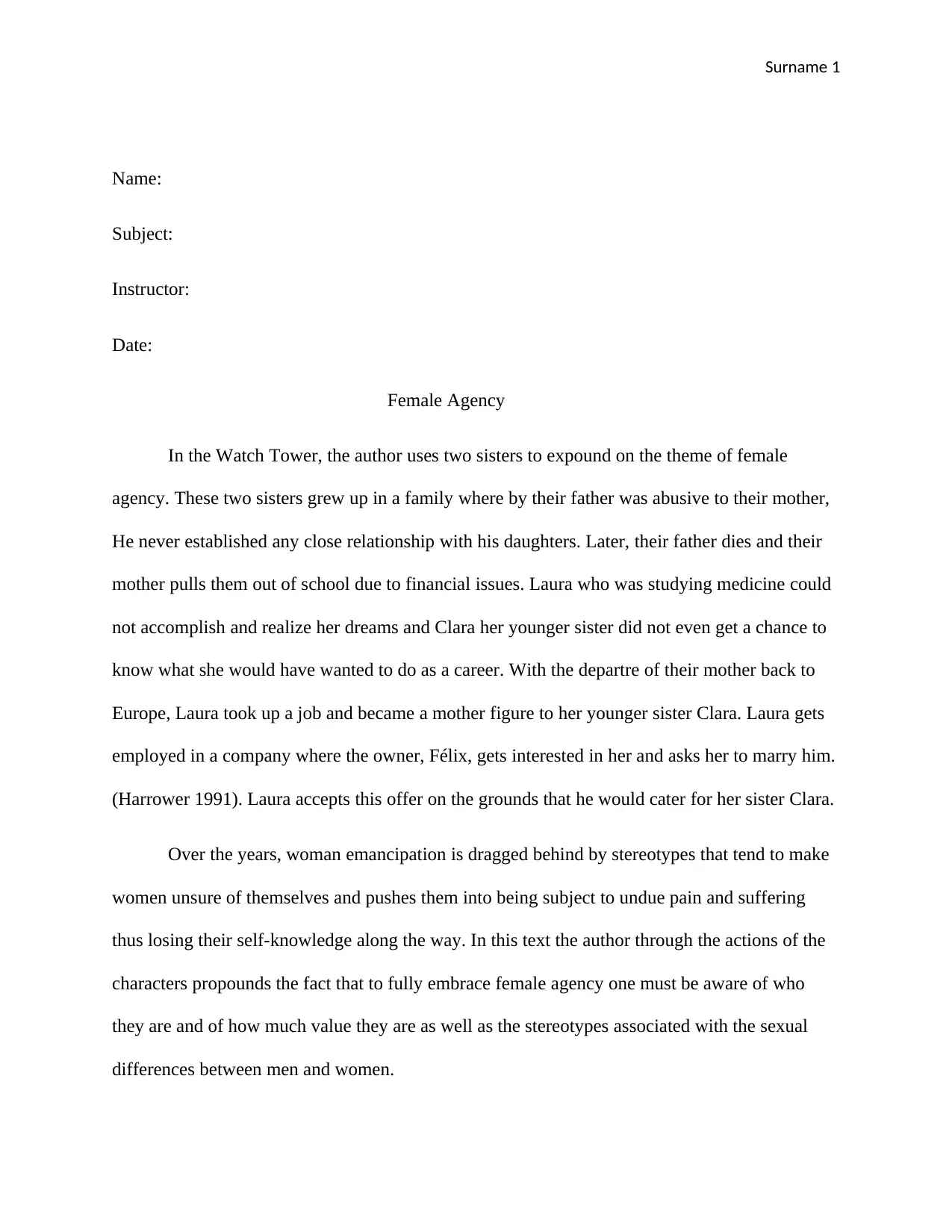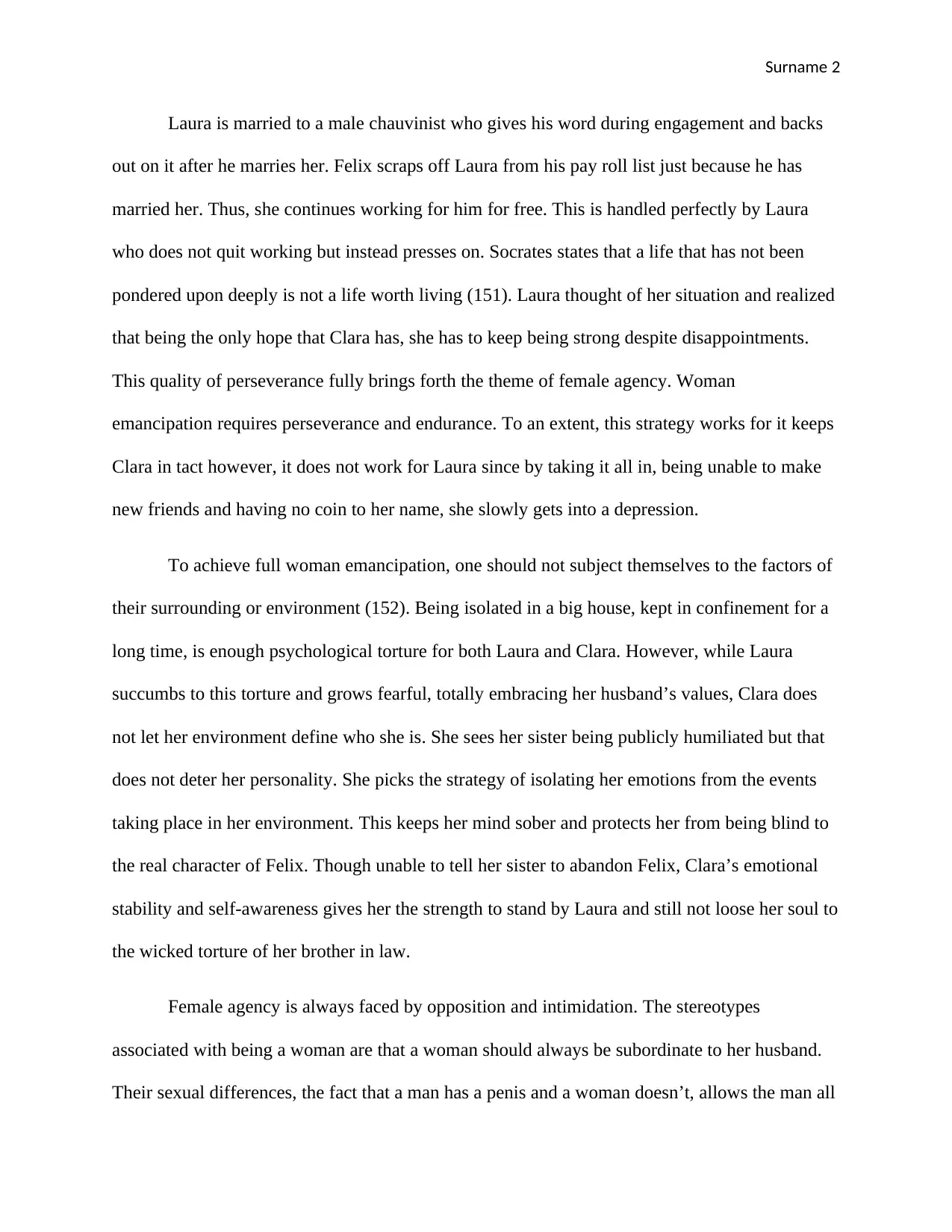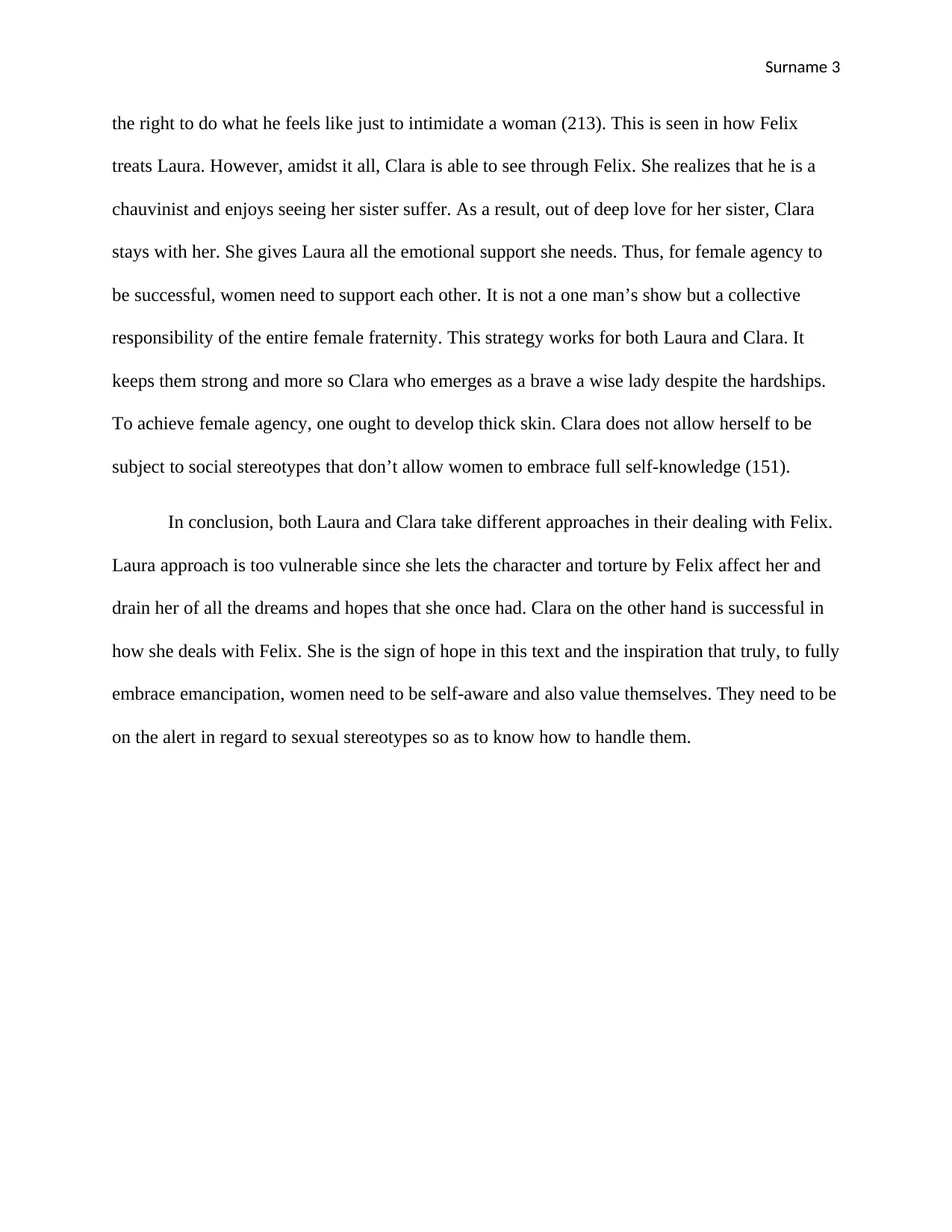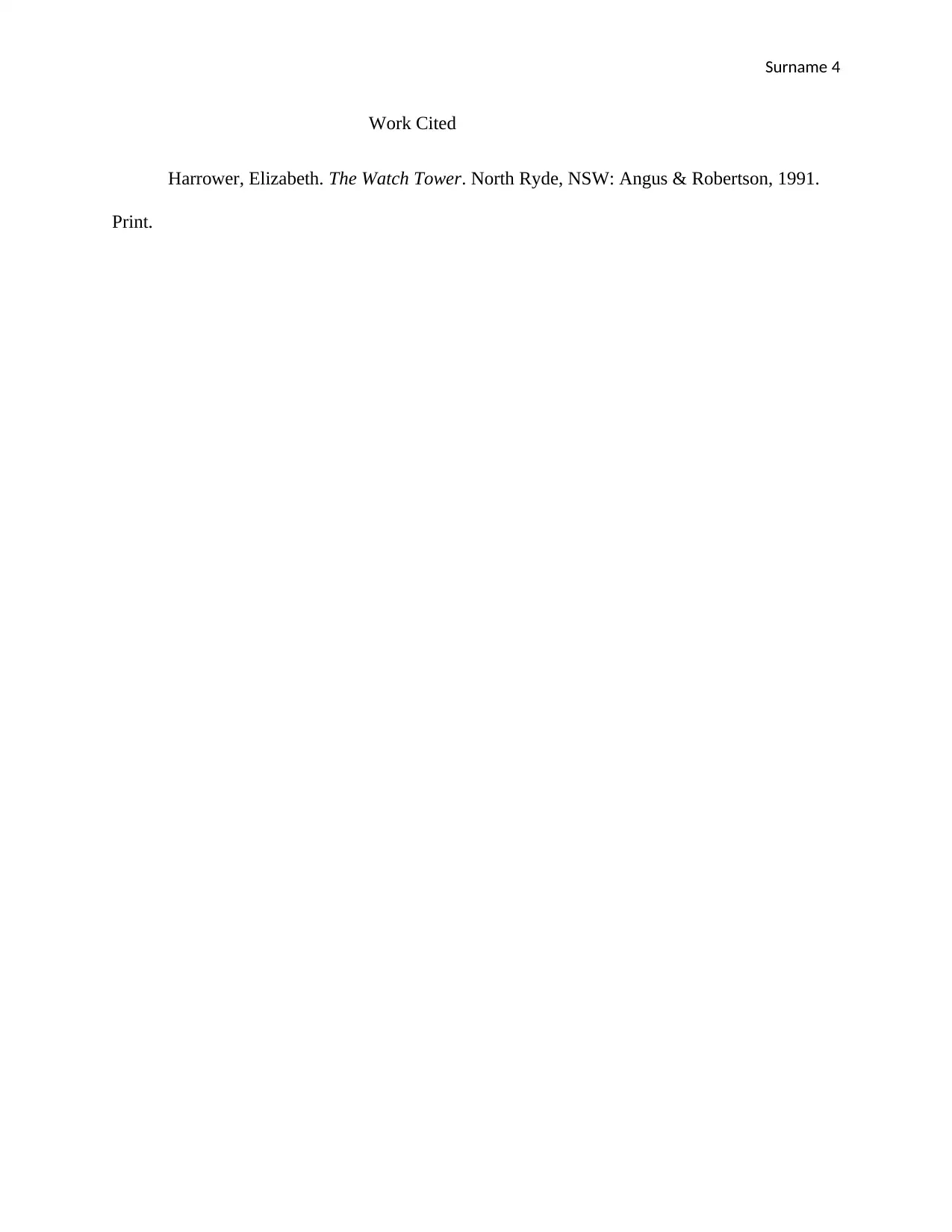An Analysis of Female Agency and Emancipation in The Watch Tower
VerifiedAdded on 2022/11/15
|4
|995
|382
Essay
AI Summary
This essay analyzes the theme of female agency in Elizabeth Harrower's novel, The Watch Tower, focusing on the experiences of the sisters Laura and Clara. The essay examines how the characters navigate societal stereotypes, particularly those concerning women's roles and expectations, and the impact of these stereotypes on their lives. It explores the challenges faced by women in a patriarchal society and how the sisters employ different strategies to cope with these challenges. Laura's vulnerability and Clara's resilience are contrasted to illustrate various approaches to achieving personal agency and emancipation. The essay argues that while Laura struggles with depression and the limitations imposed by her circumstances, Clara's self-awareness and emotional stability enable her to resist the oppressive forces in her life and support her sister. The analysis emphasizes the importance of self-knowledge, the awareness of sexual stereotypes, and the support of other women in achieving full female agency and emancipation. The essay uses textual evidence to support its claims, examining the characters' actions and interactions to illustrate the complexities of female agency within the narrative. The essay highlights the different approaches taken by the sisters in dealing with the chauvinistic behavior of Felix, and how Clara emerges as a symbol of hope and inspiration.
1 out of 4










![[object Object]](/_next/static/media/star-bottom.7253800d.svg)